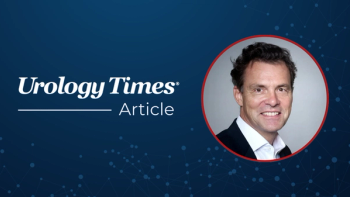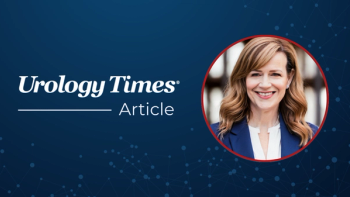
Urology Times Urologists in Cancer Care
- UCC October 2020
- Volume 09
- Issue 03
Rethinking medical education in urology
"The 21st century has ushered in technology that has created more access and readily available information at our fingertips," Raoul S. Concepcion, MD, FACS.
It is unfathomable to the majority of us that we would have this prolongation of the coronavirus disease 2019 and resulting global shutdown that has made an impact on every facet of our daily lives, both personally and professionally. Compound this with the growing and pervasive push for “social reform,” we truly are in the midst of both rewriting and creating history for decades to come. From a medical educational standpoint, we are now trying to adapt to this new socially distancing environment, but yet still meet the demands that are critical for continuing education and dissemination of the data that we need for optimal patient care. Despite the challenges, I believe this is good and forces us to evaluate and rethink how all of us best learn, especially with the availability of technology that readily allows engagement, regardless of your location.
For those readers who happen to be a sexagenarian like myself, we can all look back on our residency days in the 1980s and recall the first time we were called upon to present cases either at an Morbidity and Mortality conference or a Grand Rounds. The process of learning about patient care (or the management of complications) was lost out of fear of making sure the history was correct for the presentation and what we were to face on the floor once the conference concluded. As I look back, much of that was the case for most of the weekly conferences. As residents, we were either too tired to grasp the importance of what was being presented or concerned about completing all the “scut work” that still needed to done at the hospital. The “true” educational process, to pass the written boards, was hunkering down with Campbell Walsh Wein Urology and the previous 2 years of Urology or The Journal of Urology!
As we entered into practice, the education was attending live meetings and back in the day, relegated to sectional and national meetings of the American Urological Association. Yes, ostensibly this was about learning new techniques or advancements, but was that really the motive for most? I would contend it was probably first about visiting a city (or country) that the attendee liked, making sure they have their required number of continuing medical education hours for licensing, or catching up/networking with former residents and colleagues.
As our field has progressed and grown, advancements have resulted in urology becoming more subspecialized. And the number of societies and the associated meetings dedicated to these specific areas in urology have become more abundant. Depending on your scope of practice, a provider can truly begin to focus (and become better educated and hopefully provide better care) on their clinical interest(s) and not have to filter through abstracts, talks, and programs that are not their passion or practice population. Even the recertification testing, where the candidate can choose to answer test questions in select areas, reflects the changing environment and understanding of the voluminous amounts of information and data that is required for our specialty.
The 21st century has ushered in technology that has created more access and readily available information at our fingertips. More specialty publications, dedicated websites, daily email blasts, online presentations, and social media are now part of our educational learning process. No longer are we dependent on the “white” or “gold” journals, Campbell’s, etc. And had it not been for these outlets, where would we be educationally during this pandemic, given the cancellation of in-person meetings, advisory boards, and scientific retreats in the face of rapid explosion of new therapies and approvals?
Our goal at Urologists in Cancer Care™ is to continue to provide up-to-date information on optimizing patient management and in a format that is unique, facilitates the learning experience but is not redundant to what is already available. We feel the best way to accomplish this is to take what has been successful in the past (case presentations/reports, focused review articles, morbidity and mortality, tumor boards, etc) and adapt using technology and combined with thought leaders. Will this approach be for everyone? Of course not. After all, who doesn’t mind a nice ski meeting in Colorado or Utah or a round of golf in Arizona? Until that time, we all need to make best of what is available and determine what suits our personal needs.
Concepcion, Director, The Comprehensive Prostate Center, Nashville, Tennessee and Clinical Associate Professor of Urology, Vanderbilt University School of Medicine, Nashville, Tennessee, is editor-in-chief for Urologists in Cancer Care™.
Articles in this issue
over 5 years ago
How to implement an ERAS pathway in your urology practiceover 5 years ago
Chronic care management in the urologic oncology settingover 5 years ago
The small renal mass and in-office biopsy: An overviewover 5 years ago
Options increase for next-generation prostate cancer imagingNewsletter
Stay current with the latest urology news and practice-changing insights — sign up now for the essential updates every urologist needs.






